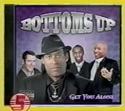|
My friend was invited to come to a job interview in a different country (both countries are in the EU), and the company is paying her the plane ticket. Prior to this she had a phone call, several emails, and she did a programming exercise (she's a software developer). If they offer her the job and salary, how acceptable is it to say that she'll consider and let them know in a few days? Are you supposed to negotiate the salary right there and then?
|
|
|
|

|
| # ? May 24, 2024 17:23 |
|
Doctor Malaver posted:My friend was invited to come to a job interview in a different country (both countries are in the EU), and the company is paying her the plane ticket. Prior to this she had a phone call, several emails, and she did a programming exercise (she's a software developer). If they offer her the job and salary, how acceptable is it to say that she'll consider and let them know in a few days? Are you supposed to negotiate the salary right there and then? I don't know if it's different in Europe, but I've never heard of anyone getting an offer at the interview in the US and it's almost always acceptable to ask for a couple days to a week to decide after receiving the offer. I'd be very wary of any company that attempted to get someone to accept the job on the spot as it's rushing an important decision and not giving you time to look over the offer and decide how you want to negotiate.
|
|
|
|
asur posted:I don't know if it's different in Europe, but I've never heard of anyone getting an offer at the interview in the US and it's almost always acceptable to ask for a couple days to a week to decide after receiving the offer. I'd be very wary of any company that attempted to get someone to accept the job on the spot as it's rushing an important decision and not giving you time to look over the offer and decide how you want to negotiate. That makes sense, but the travel makes me thinking. Are they going to pay her two or three plane tickets to come several times? Or will they negotiate salary over email or Skype? Isn't it something that's usually done in person?
|
|
|
|
Doctor Malaver posted:That makes sense, but the travel makes me thinking. Are they going to pay her two or three plane tickets to come several times? Or will they negotiate salary over email or Skype? Isn't it something that's usually done in person? I have no experience with this at all but if I had to bet, I'd say this is the only trip they're paying for but they won't expect a decision on the spot. Follow-up discussion/negotiation will happen over phone/skype/email.
|
|
|
|
Doctor Malaver posted:That makes sense, but the travel makes me thinking. Are they going to pay her two or three plane tickets to come several times? Or will they negotiate salary over email or Skype? Isn't it something that's usually done in person? For both my jobs in software engineering, I got an offer via email and then email/phone negotiations. I've seen people go multiple times for several interviews, but never heard of anyone flying out again to negotiate an offer.
|
|
|
|
Okay, thanks for the advice. She's very nervous so it's good to know that she can concentrate on the technical stuff and not worry about negotiating pay.
|
|
|
|
Doctor Malaver posted:Okay, thanks for the advice. She's very nervous so it's good to know that she can concentrate on the technical stuff and not worry about negotiating pay. To add to this, we (and most other large tech companies) will fly people out for in person interviews, but won't make a hiring decision until after the candidate has left. She'll hear back, yes or no, within a few days but any negotiation will happen via phone or email, and it's OK to ask for a few days to consider, especially if she has an interview somewhere else. Just make sure that she knows that Hashtables are god's gift to interview questions and she'll be fine.
|
|
|
|
I have a phone interview with Amazon tomorrow and according to Glassdoor they ask at least one case question, which I have no experience with. Any idea on how to prepare for that?
|
|
|
|
I'm interviewing at my current place of employment for what would be a significant promotion to a management role. I know I can do this job. I know I would be better than anyone even remotely close to my proposed salary. My boss could find someone better, but he'd have to pay them at least 3 times what I'm asking. I have the support of the people I'd be managing already... What I don't know: I don't know if my boss will let me make the changes I would want to (and which the dept. desperately needs). I don't know if even want the job, despite the fact that I've already assumed many of the responsibilities since the previous manager quit a few months ago. I feel like I'm in a good position, given that I'm not desperate to take this job, but I'm worried if I go into this interview with my boss and tell him what I REALLY think about this role and how it should work, that I'll damage the somewhat tenuous relationship we currently have. In short, the CEO (my boss) is a huge micro-manager who constantly makes terrible decisions. He's seemingly incapable of letting his managers actually manage, and has capricious moods where he swings between angry, hostile, accusatory at times, and then friendly, deferential and/or absent at other times - with no real pattern. I'm more or less content in my current role, but I just don't know if I would want to put myself in a position where I have to answer to him every day - when I know he can be impossible to deal with. I want to give him every excuse to say no to my candidacy, but the wrinkle is that I'm already doing parts of the job, at the cost of my actual duties associated with my actual role. So if he says, "I think I'll pass" - I would want to say, "That's perfectly okay - I just would like to not be on the hook for this role anymore if you're not interested in having me fill it." Or something. I don't want to come off as saying "It's not my job" - because I know that's not the way to get ahead. But I also kind of either want to get paid to fulfill this role, or go back to doing the job he hired me for - and the one I'm incentivized to do. How the gently caress... do I say "It's not my job" in a diplomatic way if (when) this falls through?
|
|
|
|
I'm prefacing this question with yes, I know I am dumb. Anyway, I had an all-day interview back on September 17th. I met with approximately 14 people. I got swamped after and only wrote follow-up thank you e-mails to the hiring manager and maybe 5 others. They aren't making their decision until Mid-October. Is it too late to write the other e-mails or did I completely screw myself over? I feel guilty that when they talk, they'll realize that some people got a follow-up but not others and it really was random :/
|
|
|
|
Just write them, it is better than not writing them.
|
|
|
|
In my experience (I've seen about 20-30 people hired at my current company for various tasks ranging from production line workers to a revenue accountant) a hiring decision has never been swayed by a followup e-mail. However it is very true that you aren't hurting yourself by sending one (unless you make a poo poo load of typos/grammatical errors). Your situation is a little more complicated though. You could always write one to every person you interviewed this time around, and if given the opportunity, claim you did the first time as well. It would be a little weird to write 5, wait 3 weeks, write 9.
|
|
|
|
CarForumPoster posted:Just write them, it is better than not writing them. No. Definitely do not write a thank you email 3 weeks later.
|
|
|
|
Vomik posted:No. Definitely do not write a thank you email 3 weeks later. Can you elaborate? It's not like I'm writing the thank you note to the hiring manager. It'd just be to some of the remaining people who interviewed me. Most of them are people who would be my equals - not my superiors. I figure that I have another week before they decide so wouldn't it be better to send a personalized e-mail to the people who might be advising the hiring manager?
|
|
|
|
At this point it just reminds them you got lazy and forgot.
|
|
|
|
Xandu posted:At this point it just reminds them you got lazy and forgot. Fair enough. I guess at this point I get to just hope that e-mailing the hiring manager was good enough.
|
|
|
|
Don't stress about it. If I conduct interviews for someone else's hire and don't get a thank you email I wouldn't even notice.
|
|
|
|
When companies ask for 3 references, are they expecting to contact all 3 or do they just want one or two extras in case they can't get in contact with the first reference?
|
|
|
|
Ron Don Volante posted:When companies ask for 3 references, are they expecting to contact all 3 or do they just want one or two extras in case they can't get in contact with the first reference? Any time you give a reference, you should expect that reference to be contacted. Whether they do or don't makes no difference.
|
|
|
|
^ Alright, fair enough. The company I'm interviewing with also asked me for my expected salary, including base, bonus, and equity. This will be my first full-time position. What the hell do I say? I can get the salary (which is way above the average entry-level salary) off of glassdoor but I have no idea what to put down for bonus and equity. Should I ask for a 51% share of the company? edit--Apparently Glassdoor has benefits info as well. The average for this position is 60k base, 20k cash bonus, 5k stock bonus. That seems really ridiculous for entry-level; I was expecting more like 45-50k. Should I go for the lower range on Glassdoor? Ron Don Volante fucked around with this message at 20:37 on Oct 9, 2013 |
|
|
|
Ron Don Volante posted:^ Alright, fair enough. The company I'm interviewing with also asked me for my expected salary, including base, bonus, and equity. This will be my first full-time position. What the hell do I say? I can get the salary (which is way above the average entry-level salary) off of glassdoor but I have no idea what to put down for bonus and equity. Should I ask for a 51% share of the company? Not if those are the averages for the actual position you're applying for. Don't sell yourself short for no reason.
|
|
|
|
Does anyone have pointers in regards to all-day interviews? What's involved in these sessions, and what's the ultimate goal?
|
|
|
|
antiga posted:Not if those are the averages for the actual position you're applying for. Don't sell yourself short for no reason. It just feels strange going from offers in the 30's to asking for 85k total compensation.
|
|
|
|
Ron Don Volante posted:^ Alright, fair enough. The company I'm interviewing with also asked me for my expected salary, including base, bonus, and equity. This will be my first full-time position. What the hell do I say? I can get the salary (which is way above the average entry-level salary) off of glassdoor but I have no idea what to put down for bonus and equity. Should I ask for a 51% share of the company? Don't tell them.
|
|
|
|
Ron Don Volante posted:^ Alright, fair enough. The company I'm interviewing with also asked me for my expected salary, including base, bonus, and equity. This will be my first full-time position. What the hell do I say? I can get the salary (which is way above the average entry-level salary) off of glassdoor but I have no idea what to put down for bonus and equity. Should I ask for a 51% share of the company? What industry/market/area are you in? This sounds extremely high for entry level, but if you're looking at a high tech startup in CA or NY it might be about right. If that position is for an entry level office admin in rural Ohio you are probably pretty far off base. It's always best to just not say anything or say "competitive for the area/industry", wait until they make an offer, and then counter if you feel you have leverage or if it's too low. ianskate posted:Does anyone have pointers in regards to all-day interviews? What's involved in these sessions, and what's the ultimate goal? My buddy did a half day interview at a well respected winery. He interviewed one on one with the entire "team" he would be working with as well as the supervisor, manager, and director. It was for a web development type position so he was asked varying levels of technical questions for close to four and a half hours without any real breaks. YMMV
|
|
|
|
Bugamol posted:What industry/market/area are you in? This sounds extremely high for entry level, but if you're looking at a high tech startup in CA or NY it might be about right. Big tech company in Seattle. I ended up asking for around the bottom 1/3rd of the Glassdoor range, just hope it doesn't backfire.
|
|
|
|
Thank you to everyone for all the advice in this thread. After a month and three interviews, I got a new fuckin' job! I'm off a miserable sinking ship and onto brighter horizons!
|
|
|
|
me your dad posted:Thank you to everyone for all the advice in this thread. After a month and three interviews, I got a new fuckin' job! Congrats! Great news!
|
|
|
|
Ron Don Volante posted:Big tech company in Seattle. I ended up asking for around the bottom 1/3rd of the Glassdoor range, just hope it doesn't backfire. Yeah that seems about right. Starting comp is way higher than you would expect.
|
|
|
|
Ron Don Volante posted:I have a phone interview with Amazon tomorrow and according to Glassdoor they ask at least one case question, which I have no experience with. Any idea on how to prepare for that? I have some experience with this! Case questions are getting more and more common as far as I can tell -- tech companies, investment banks, and consulting firms all use them, in my own experience (consulting firms the most). The current structure doesn't really tell you too much, so I thought I'd write up a larger guide. Sorry for the terrible formatting. Case Interviews: A Guide What is a Case Interview? So I have done around 75+ case interviews at this point in the process of doing consulting, banking, and tech company recruiting (mostly consulting). A case interview is essentially solving an open ended business problem. You will be presented with a very general problem such as "Company X is not profitable, how can they be returned to profitability?" and asked to solve it in the span of 45 minutes by asking your interviewer for information, making reasonable assumptions, and ultimately coming to a recommended solution. This case is designed to test your ability to structure ambiguous problems well and answer them in a systematic and logical way. OK, How Do I Do These? This explanation is honestly too long to go into here. There are very difficult, and I would recommend reading the next section, which points you to resources and a general study and preparation guide. However, here's an overview: 1 -- Listen to them go through the case, and write down the important points. When they are done, repeat a paraphrase of the case to them to make sure you understood, and ask to clarify the objectives of the case (e.g. So is the only objective to increase profitability?) 2 -- Make a framework that you will go through the case with. Think of 3-4 of the most important areas which need to be explored in order to solve the case, and write down the issues under each of these buckets. You should do this in a branching diagram called an issue tree -- what this is will get explained more in any number of resources. For example, in the profitability case you would most likely want to look at something like Revenues and Costs, with each broken up into categories like Volume and Price for Revenue and Fixed and Variable Costs for costs. There is no one right way to approach a case, but this is a good beginning. 3 -- Pick which area is the most likely to yield an answer, and begin with that area, going through all the issues included in it until you have either solved the case or the area is exhausted. Then move on to the next most likely area, systematically. Solving these areas will usually involve asking for data, e.g. number of units sold this year vs the last, etc. 4 -- Present your conclusions. State your conclusion (i.e. your recommendation), the reasons why you arrived at it, and then restate your conclusion. Some case interviews don't follow this style exactly -- sometimes interviewers will ask you to set up a framework (step 2) but then tell you which area they want you to start with (step 3), and then guide you through to a greater or lesser degree. Things to keep in mind: 1 - Get your math right. 2 - Explain what you are thinking as you go through the case; your interviewer can't know that you are thinking logically or well without doing this. 3 - Clearly signpost everything you do. Explain why you are doing everything. If you move from one area of a case to another, explain what you concluded from the first area and why you are choosing to focus on this area now. If you are doing calculations, state your equation in words beforehand (e.g. I'm going to find total revenues, by taking price and multiplying it by units sold). 4 - Take your time -- it's fine to ask for ~2 minutes to set up a framework, or spend the time to make sure you get calculations right. How Do I Prepare for Case Interviews? The best way to prepare for case interviews is to do a lot of case interviews. However, I would first read some preparation materials. I would begin by reading one of a few books which lay out how case interviews work. These books will talk about the case interview in depth and give example frameworks to solve problems. I would recommend Case in Point and Case Interview Secrets. Case in Point is a classic and good to start with for an overview of what to expect. However, the frameworks it gives are not great -- they are too specific and require memorizing something like 12 frameworks for different situations. Case Interview Secrets is the best prep book I've found, and gives frameworks that are flexible enough that you can adapt them to every case easily, but give enough information that you will be prepared. Second, I would recommend getting the Case Interview Look Over My Shoulder program -- it's made by the same guy who wrote the book, and can be found at caseinterview.com. The website itself has a lot of free content, but the program itself is easily the most helpful. It is recordings of a ton of example cases at all levels of skill with commentary. I've listened to the entire program around 4-5 times -- actively (i.e. taking notes) the first time, and passively (i.e. when I'm travelling etc.) the other times. These cases were incredibly helpful with getting me familiar with how to do case interviews stylistically -- when to synthesize or present conclusions, how to do so, how to deal with problems which come up, etc. The program is pretty expensive (like $200 maybe?) but in my opinion worth it. For example, if it makes you just 1% more likely to get a job which you value, say, $20,000 more than the job you'd get otherwise, it has already paid for itself. Obviously that math isn't really correct, but I really really recommend it. (also you could :files: but really shouldn't because the guy who makes it deserves the money) Third, DO CASES. Do cases with partners! Do cases on your own! Do cases every day! Actually doing cases is the single best way to get better at doing cases. Before my first consulting interview I had done around 40 live practice cases with partners. This is a huge advantage over other people interviewing with the same firm who have only done 3-4 cases. Keep a log of every case you do and write down 3-4 specific, actionable areas you need to improve on. Choose 1-2 of them to consciously work on for the next case. This is a good way to improve very quickly and efficiently. If there is a specific area of a case you are much worst at -- say structuring cases, or doing calculations -- consider just doing those portions of several cases to really focus on improving that area. To find cases to complete, consider using either the example cases in Case in Point and Case Interview Secrets, or use MBA casebook cases: http://masterthecase.com/case-interview-casebooks/ .
|
|
|
|
semicolonsrock posted:http://masterthecase.com/case-interview-casebooks/ . I just wanna say that using this site fervently the week and a half before my interview is what got me my last job. The interview itself was in a different format than most cases (I had to work on a case on my own for an hour and then give a 15 minute presentation after which the interviewers asked me questions) but it didn't matter because it's still the same way of thinking, reaching conclusions, etc. Those casebooks really give a good insight into how the interviewer will evaluate your responses and what they're looking for. I had to practice pretty much nonstop that week whenever I had free time, but it allowed me to get the job over equally qualified people from business schools that gave them a lot of formal training for case interviews (whereas I had none as an economics grad).
|
|
|
|
I applied for a neat-sounding job, and got a response (yay!). They're asking me to fill out a short questionnaire. It isn't a long one, but I'm stuck on two things:
melon cat fucked around with this message at 03:01 on Oct 16, 2013 |
|
|
|
No sense in being modest, Advanced or even Expert are fine if you think you're really good with the software. Just keep in mind the job you're applying to and what you'll be expected to do. That's an awesome question. Hard to help you though. What do you want them to know? What's your biggest strength/asset? What unique skillset do you bring to the position?
|
|
|
|
melon cat posted:[*]They're asking me a really interesting question: "What one question would you like us to ask you during an interview?" I've never had to think of an answer to such a question! Any suggestions? I'd go with "When can you start?" I'm serious, this answer has several advantages. First of all, you've made the reviewer smile. Reading job applications is dull, and you've created a positive moment for the reviewer, which they will associate with you. They will also be more likely to remember you because of it. You've shown that you have a sense of humor, which is good, as one of the major criteria job interviewers look for is "Will I mind working with this person everyday?" Finally, this answer projects confidence. It says that you believe the rest of the application and resume stands on its own, so you can afford to give an honest answer rather than tell the reviewer what you think they want to hear. Granted, this answer is risky, as you don't know if the reviewer will have a sense of humor, but I think it will pay off more often than not.
|
|
|
|
It is risky. I'd think very carefully about the rapport you've developed before saying that. If you haven't absolutely aced the interview it will backfire and if you have aced it you probably won't need such a gimmicky answer.
corkskroo fucked around with this message at 13:42 on Oct 19, 2013 |
|
|
|
Konstantin posted:I'd go with "When can you start?" I'm serious, this answer has several advantages. First of all, you've made the reviewer smile. Reading job applications is dull, and you've created a positive moment for the reviewer, which they will associate with you. They will also be more likely to remember you because of it. You've shown that you have a sense of humor, which is good, as one of the major criteria job interviewers look for is "Will I mind working with this person everyday?" Finally, this answer projects confidence. It says that you believe the rest of the application and resume stands on its own, so you can afford to give an honest answer rather than tell the reviewer what you think they want to hear. Granted, this answer is risky, as you don't know if the reviewer will have a sense of humor, but I think it will pay off more often than not. "If we were to hire you, when would you be available to begin" is actually a pretty typical interview question that's asked as part of the administrivia in the process. It's just a way to make sure that your answer isn't "in 4 months when my contract is up." It may or may not help here.
|
|
|
|
melon cat posted:
In my field (copywriting/marketing/advertising/publishing), I would want someone to ask me what I think sums up the entire purpose of the job and how I can fill that role. I have lots of opinions about my field and the role it plays and how I fit into it, but sometimes I feel like interviewerss talk about a lot of the superficial standard bullshit without really discussing the BIG questions of why the role exists and how it fits together with the business's goals, etc.
|
|
|
|
In engineering it is pretty common to have jobs that are work 4 10s, friday off, or strict 40 hour 48/5 work weeks. It is also common to have 60 hour 6/10+s work week. Both end up being salaried. I don't mind working 60 hours per week, I just wanna be paid 1.5x+ the salary of a 40 hour per week job. What is the best way of phrasing this in an interview without seeming lazy? I was thinking something along the lines of when they ask me if I have any questions to ask them to describe a typical week in that role, but Id really like to be a bit more direct. I also dont want them to deflect this question and it end uyp that I am all work no social life and not making any extra for it.
|
|
|
|
Generally I ask about the work/life balance of the position.
|
|
|
|

|
| # ? May 24, 2024 17:23 |
|
Volmarias posted:"If we were to hire you, when would you be available to begin" is actually a pretty typical interview question that's asked as part of the administrivia in the process. It's just a way to make sure that your answer isn't "in 4 months when my contract is up." It may or may not help here. Konstantin posted:I'd go with "When can you start?" ... I would go for not that. Make it something cool about yourself not obvious.
|
|
|



















